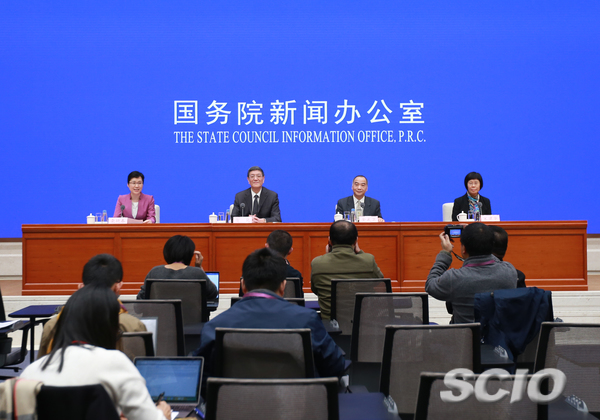Regulation of patent agents to improve services
Patent agents will be ordered to cease doing business and pay fines if it's found that they are working without a license, under a newly revised regulation.
The National Intellectual Property Administration explained the regulation, which will take effect in March, to the public at a news conference held by the State Council Information Office of China on Tuesday.

Punishments for unlicensed agents is a crucial part in the revision, it said.
Besides the fines and shutdowns, patent management authorities at the provincial level have also been given the right to confiscate the assets of agents who conduct businesses without government authorization, it added.
The unlicensed agents, often called black patent agents, have often been the subject of public complaints.
"They seriously harm market order, and the services they provide are poor," said Song Jianhua, head of the administration's regulatory division.
"The black agents are not good at helping clients apply for patents or deal with related affairs," she said. "They get benefits through fake advertisements or unfair competition, such as lowering their price in the market."
The interests of innovators and patent holders will be damaged if the country ignores the unlicensed agents, she said, adding that their prohibition is an internationally accepted practice.
Liu Chang, a Beijing lawyer at Zhong Wen Law Firm, said clarifying administrative punishments in the regulation will help ensure that law enforcement departments have a proper legal basis when going after problems. It can help keep the industry in order, Liu said.
The revised regulation was passed by the State Council in September, aiming to improve the quality of patent agents, contribute to intellectual property development and push forward innovations across the country, according to He Hua, deputy head of the administration.
As of the end of October, 42,569 people and 2,126 institutions nationwide had received the patent agent licenses, allowing them to provide services such as patent analysis or mediation.
He said the new regulation highlights the importance of patent agents, simplifies procedures for license application and urges authorities to increase their work efficiency and disclose agent-related information to the public in a timely manner online.
"We'll also play our role in supervision, trying to provide a better environment for innovators," he added.

